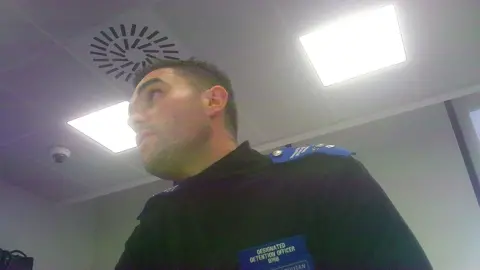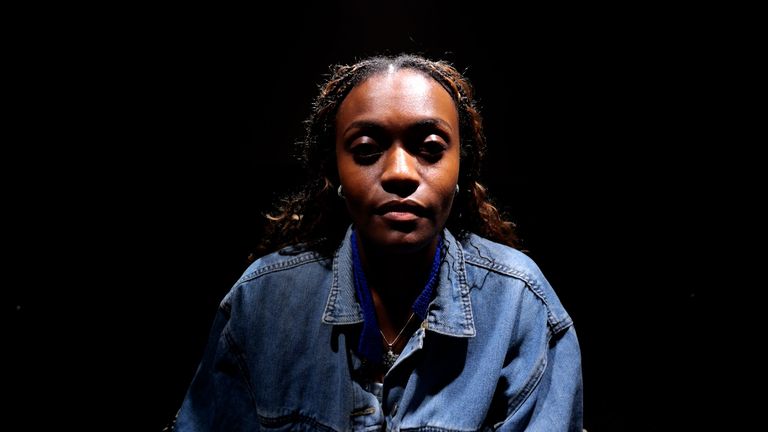Why BBC sent undercover reporter into a busy London police station
Behind the Badge: Panorama’s Undercover Reporter Exposes Toxic Police Culture
Adjusting his uniform in the mirror, Rory Bibb pressed record on his video diary. “I feel ready,” he said.
But this was no ordinary first day at work. For the next seven months, Rory would serve as a designated detention officer at London’s Charing Cross police station—while secretly working for BBC Panorama. Equipped with hidden cameras, he was tasked with exposing the culture inside Britain’s largest police force. What he captured was a troubling portrait of misogyny, racism, and officers boasting about their use of force.
A Difficult Decision
Undercover journalism is never taken lightly. Deception and intrusion are only justified when there is compelling evidence of wrongdoing—and at Charing Cross, one of London’s busiest stations, there was no shortage of warning signs.
In 2022, an Independent Office for Police Conduct (IOPC) report revealed a grim picture: officers joking about rape, sharing misogynistic messages, and engaging in bullying and harassment. A subsequent review by Dame Louise Casey declared the Met Police “institutionally misogynistic, homophobic and racist.” Despite assurances of reform, whistleblowers insisted toxic behaviour was still entrenched.

Getting Inside
Rory, a journalism graduate with a background in PR, applied online for the detention officer role. He passed vetting, interviewed, and at 28 years old was hired. Officially, his job was to ensure detainees were fed, safe, and cared for. Secretly, his mission was to document the station’s culture.
Walking into Charing Cross each shift, Rory faced double pressure: performing his duties under near-constant CCTV surveillance while discreetly recording the officers around him. “It’s the last place on earth you’d want to be wearing secret cameras,” he later said.
Living a Double Life
Almost every shift, Rory wore custom-built recording equipment. His covert footage was reviewed by Panorama’s senior editorial team, a former chief constable, and even a former attorney general to ensure the evidence was robust.
But undercover work came at a personal cost. “You’re lying to your colleagues, your friends, even your family,” Rory admitted. “It’s an emotional rollercoaster.”

Inside the Culture
Breaking into the tightly-knit police culture proved harder than Rory expected. Officers were cautious, often warning him to “be careful what you say” around new people. One constable explained: “When someone new joins, boom—mask on. You’ve got to figure out what you can and can’t say.”
Some misconduct was blatant. Rory’s line manager, Sgt Joe McIlvenny, openly bragged about sexual exploits at the custody desk. Yet when asked about punching a detainee, he pulled Rory aside, warning him never to discuss such matters on camera.
Other revelations emerged only outside work. In pubs, where officers relaxed after shifts, Rory recorded deeply racist and misogynistic remarks. One officer, PC Phil Neilson, suspicious at first, eventually opened up after Rory carefully gained his trust. Over pints, Neilson launched into violent and discriminatory rants—despite policing one of the most multicultural cities in the world.
Winning access often meant laughing along or nodding to offensive remarks. “I wasn’t being me,” Rory later reflected. “I was reflecting the culture around me—and that was uncomfortable.”
Beyond the Few
Not every officer behaved this way. Rory observed many who worked with professionalism and compassion. But the evidence showed the problems that had long tarnished the Met’s reputation had not disappeared. Instead, they had been driven underground—surfacing only when officers felt they were among trusted colleagues.
The Aftermath
When Panorama confronted the Met with its findings, Commissioner Sir Mark Rowley condemned the behaviour as “disgraceful.” The force suspended eight officers and a staff member, reassigned others, and disbanded the Charing Cross custody team. Rowley insisted the Met was determined to “identify, confront and get rid” of toxic individuals.
The IOPC has now launched its own investigation. Yet whistleblowers remain unconvinced that reform has truly taken hold.
Panorama’s undercover operation revealed what official reviews and public reassurances could not: within parts of the Met Police, racism and misogyny are not relics of the past. They remain embedded, sustained by secrecy, and only expressed when insiders feel safe to drop the mask.




